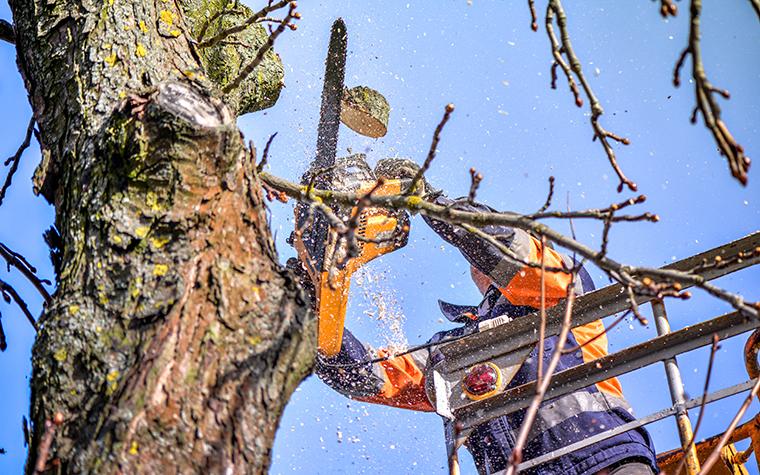VERSAILLES, Mo. – When hiring a tree care professional, use caution and stick to reputable companies, says Joni Harper, University of Missouri Extension field specialist in natural resources.
Harper and other MU Extension specialists have received increased numbers of reports this year of homeowners being solicited by door-to-door salespeople offering services such as pruning, spraying or trimming. The salespeople often warn homeowners that trees will die if they don’t take immediate action.
“True tree care professionals don’t solicit work this way,” she says. “Think of it like this: Would you trust a doctor or dentist who showed up uninvited at your door, diagnosing you with a problem you didn’t know you had? Reputable tree care companies typically have more than enough work and don’t need to find customers this way.”
Harper offers tips to find a qualified, trustworthy tree care professional:
Be informed
Before hiring anyone, ask for their full name, company name, address, phone number and references. Call the phone number to confirm it is legitimate.
Check for licensing. If they’re working within city limits, they should have a current city business license. At minimum, anyone applying pesticides should have a commercial pesticide applicator or technician license.
However, a license alone doesn’t guarantee the person is qualified to care for trees. Professional companies should also be bonded and willing to show you current certificates of liability and workers compensation insurance. “A nice-looking truck and an official-sounding name aren’t enough,” says Harper.
Get detailed estimates
A written estimate is essential. It should include the species of tree, its location on your property and a detailed description of the proposed work. “Prune front oak,” for example, isn’t specific enough.
Don’t rush to hire the first person who gives you a quote. Get at least two or three estimates to compare. Reputable companies will provide free estimates and won’t pressure you to make an immediate decision.
Do your homework
Ask if the work will follow American National Standards Institute (ANSI) standards, which outline best practices for pruning, fertilization and tree care safety. Even if it’s not in the contract, you can still review these standards to make sure the company’s methods align with industry guidelines. The Tree Care Industry Association has information about ANSI tree care standards.
You can also find a certified arborist near you by visiting the International Society of Arboriculture’s website. “Hiring a certified arborist is a great way to ensure your trees receive proper, professional care,” says Harper.
Never top trees
Tree topping is widely known to harm trees. “If a company recommends topping, that’s a red flag. Don’t hire them,” says Harper.
No spikes for climbing
Professionals should never use spurs or spikes to climb a living tree. Spikes create wounds that can spread disease and damage the tree.
Be realistic about price
Quality tree care is not cheap. If a price seems unusually low, be wary. It might signal inexperience or poor-quality work. Getting a second or even third estimate can help you make an informed decision.
“Unfortunately, some homeowners have been taken advantage of by dishonest individuals, which gives reputable tree care companies a bad name,” says Harper. “Take your time, do your research, and remember, your tree isn’t going to die tomorrow if you don’t have it treated today.”
If you have questions or need more information, contact your county extension center.
